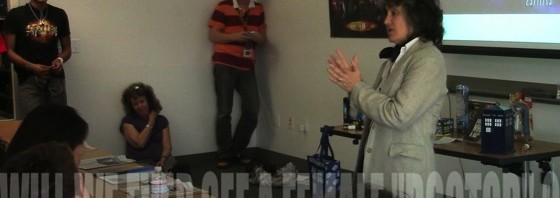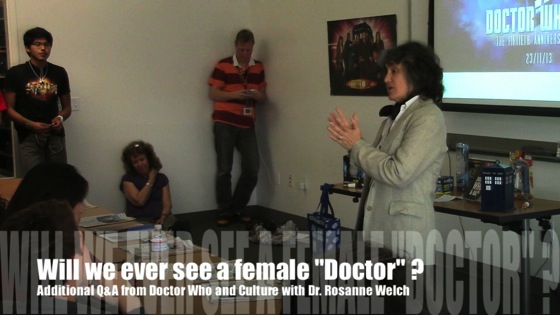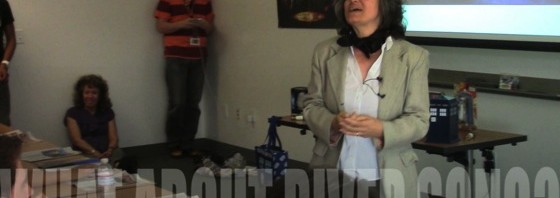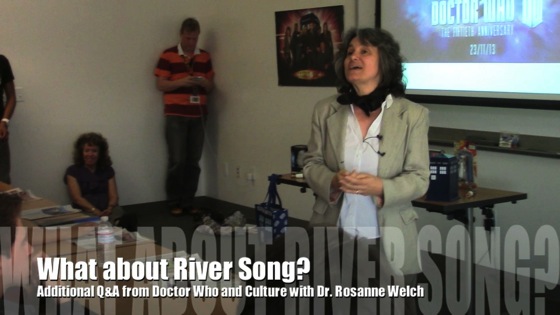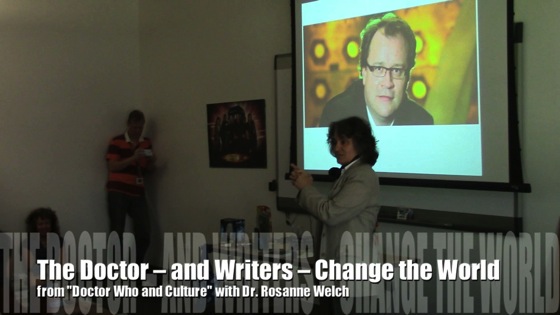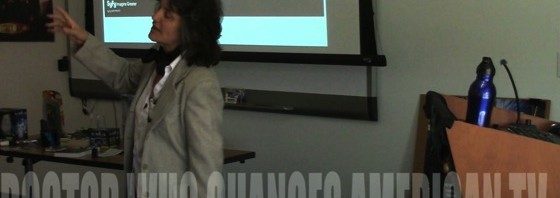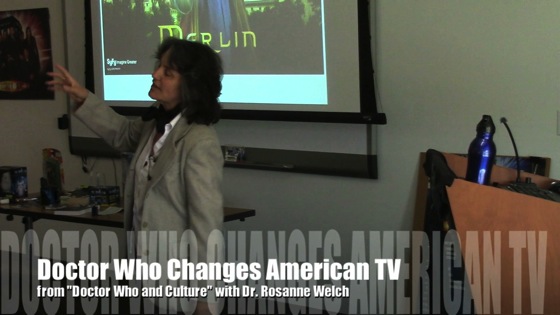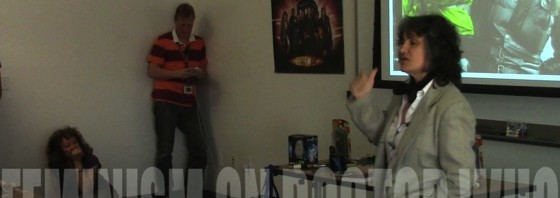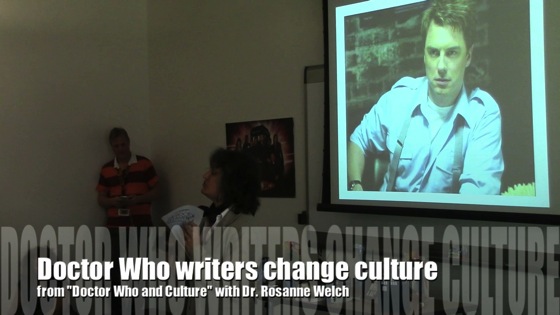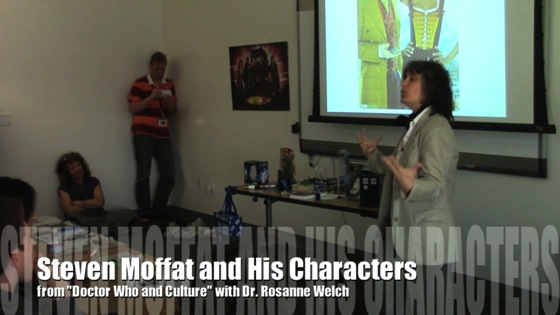Additional Q&A clips from the presentation “Doctor Who and Culture: with Dr. Rosanne Welch
Subscribe to Dr. Welch’s YouTube Channel
Transcript:
I actually think Steven did an interesting thing because one of the things that makes Doctor Who so popular is its positivity. It has a positive view of the future. I mean, I’m not a fan of the whole dystopian — yeah, yeah, the Walk Dead are fine and all that, but I don’t really think the world is going to be so awful and Hunger Games is a really cool book, but I really don’t think we’re all going to be shooting each other on the streets with crossbows in, like, 40 years. And I think most people (inaudible) so, I think while those are popular, I don’t think they have the same lasting loving — I mean, The Doctor is so positive and I think what Steven considered — and so hopeful — I think he realized that by having all the Time Lords be dead and it was this terrible Time War and this genocidal thing, it put a pall over the universe that really didn’t suit Doctor Who. So, this was his chance, if any, to reboot that pall and now we have a positive movement and, you know, if you think about it, one of the greatest themes of all literature is, “Where does Dorothy want to go? Home!” and now Peter Capaldi will — and we want to reinvent the Gallifreyians. We want to see that world, because it was such a cool world. When I watched Tom Baker back — it was wonderful when he went to Gallifrey and your saw all these — and met other Time Lords. In a way, it became claustrophobic to have lost that connection. So, I mean, I think that’s why he did that and I know there is controversy over it — Oh my god, some people love that episode and some people don’t like it. From a writing standpoint, you teach in writing that all drama is based on a decision. Somebody has to make a choice and that episode is only about a decision. Three guys talking about making a decision and then it’s made and none of us expect the one to be made to be the one that got made. Which is the nice twist that he put in there, which we didn’t assume anyone had the right — but, hello, he’s in charge the universe, so he does have the right.
Dr. Rosanne Welch, Cal Poly Pomona Faculty from the Department of Interdisciplinary General Education discusses Doctor Who and how the show has changed television writing. Doctor Welch will further discuss how society looks at culture and gender roles with the use of the Doctor and his companions’ adventures.
“Natalie Lopez at the CalPoly University Library invited me to do a presentation for National Libraries Week on Doctor Who and Culture so that’s why a group of Whovians from both CalPoly and CSUF gathered in the Special Events room on April 16th. It was wonderful to look out over a sea of t-shirts and other Doctor paraphernalia present among the crowd as I pontificated about what makes Who great – mostly giving me a chance to present a case for the fact that writers make Doctor Who and therefore writers make culture.”


